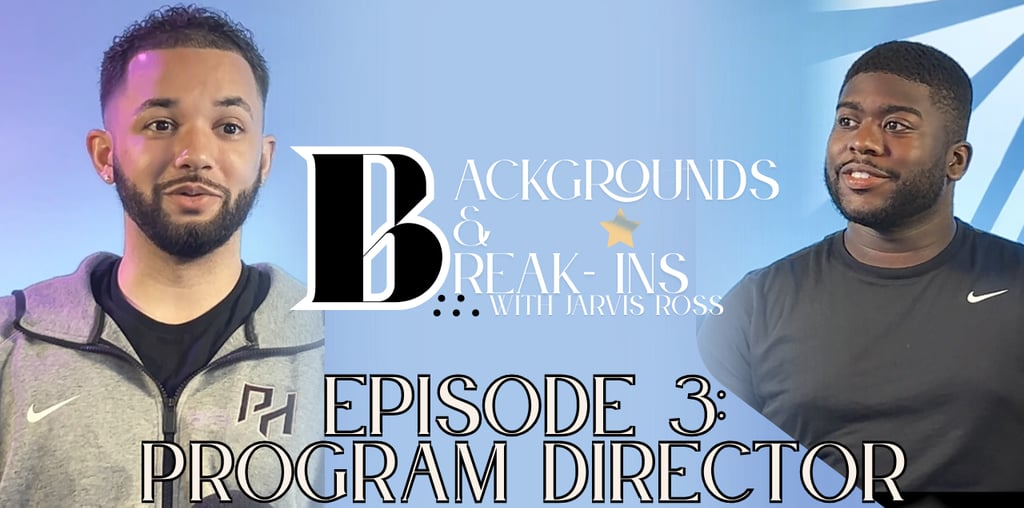Courtside Commitment: Building AAU From the Ground Up
A Backgrounds & Break-Ins Feature | Episode 3


Who is Eric McElroy?
Eric McElroy is the founder and program director of Path Hoops, an Atlanta-based AAU basketball program built on grit, player development, and community impact. Originally starting his journey in 2021 as a middle school coach, Eric's passion for the game and for mentoring youth has since driven him into the world of grassroots basketball. As a former athlete and a coach with firsthand experience of adversity, Eric uses his platform to instill perseverance, discipline, and teamwork into his players—whether they’re battling through losses or growing into competitive tournaments.
Eric believes in the power of reflection and values the deeper purpose of coaching: shaping young men’s character through basketball. His leadership is hands-on, informed by mentors like Andrew Tulo and Byron Taylor, and deeply influenced by personal challenges growing up as a mixed-race individual navigating identity. Today, Path Hoops is not just a basketball program—it’s a vessel for teaching life lessons and providing opportunities for youth to grow both on and off the court.
Career Role Description – AAU Program Director
As an AAU Program Director, Eric wears multiple hats: coach, recruiter, evaluator, leader, and mentor. His role revolves around building and maintaining competitive youth basketball teams, guiding athletes through development, and matching players with suitable tournament competition. A significant part of this position involves logistics—scheduling tournaments, securing gym space, managing team rosters, and communicating with parents, scouts, and coaches.
Directors must assess the skill level of players and teams, ensure they’re in the right competitions to develop confidence and resilience, and navigate the emotional highs and lows of wins and losses. Beyond basketball, directors like Eric also serve as life mentors, helping players process setbacks and build mental toughness. They also maintain community ties and establish credibility through consistent leadership, often building the program from the ground up. It's a labor-intensive role that blends passion for the sport with a heart for mentorship and long-term impact.
Interview Summary
Eric’s interview highlights the emotional weight and reward that come with grassroots coaching. He discusses the challenges of losing early on with Path Hoops and the doubt it created, only to be reaffirmed by players’ gratitude and the personal belief that he belongs in this space.
Eric shared how he helps players process losing by encouraging them to reflect on whether it fuels their preparation or discourages their participation. Perseverance is key. His experiences as a coach and director are rooted in community and personal evolution—learning from mentors like Andrew Tulo and Byron Taylor, while staying deeply committed to the growth of his players.
He also opens up about his identity as a mixed-race man in America, sharing how internal and external judgments shaped him, and why authenticity and self-respect are critical for young Black individuals navigating professional spaces. Through it all, Eric remains grounded in one truth: he loves the game, and the game keeps him going.
Pros of Being an AAU Program Director :
Hands-On Youth Impact – You play a direct role in shaping young athletes both on and off the court, becoming a mentor and role model.
Networking Opportunities – Constant interaction with parents, college scouts, coaches, and community leaders creates valuable professional and personal connections.
Fulfillment Through Community – Watching players grow and succeed in life and sport provides deep emotional rewards that extend far beyond wins and losses.
Cons of Being an AAU Program Director :
Resource Limitations – Finding consistent gym space, quality facilities, and proper scheduling can be an ongoing challenge.
Client Retention Issues – Player turnover is high, especially when teams struggle early. Losing seasons can discourage commitment.
Time Consumption – Between planning tournaments, practices, coaching, and managing relationships, the role can demand long, irregular hours.